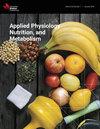Antiglycating potential of acesulfame potassium: an artificial sweetener.
Abstract
Sweeteners have replaced the natural sugars in the food and beverage industry because of many reasons, such as hyperglycemia and cost. Saccharin, sucralose, aspartame and acesulfame-K are the most commonly used sweeteners. In the present study, the abovementioned artificial sweeteners were used to assess their glycating properties by established methods such as browning, fructosamine assay, determination of carbonyl content, protein aggregation, and measurement of fluorescence. Amadori and advanced glycation end products (AGEs) are formed as a result of the interaction between carbonyl groups of reducing sugars and amino groups of proteins and other macromolecules during glycation. The objective of this study was to investigate the influence of artificial sweeteners on the formation of AGEs and protein oxidation in an in vitro model of glucose-mediated protein glycation. The results indicated that the abovementioned artificial sweeteners do not enhance the process of glycation. On the other hand, acesulfame-K was found to have antiglycating potential as it caused decreased formation of Amadori products and AGEs. Further studies are essential in the characterization of Amadori products and AGEs produced as a result of interaction between sweeteners and proteins, which are interfered with by sweeteners. This study is significant in understanding the probable role of artificial sweeteners in the process of glycation and the subsequent effect on macromolecular alteration.





